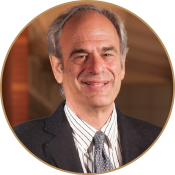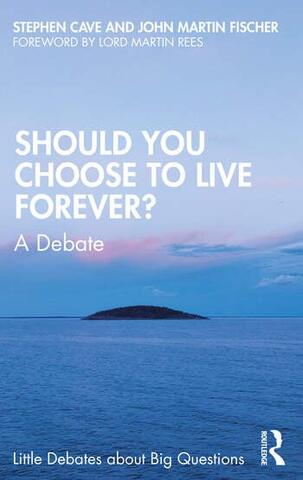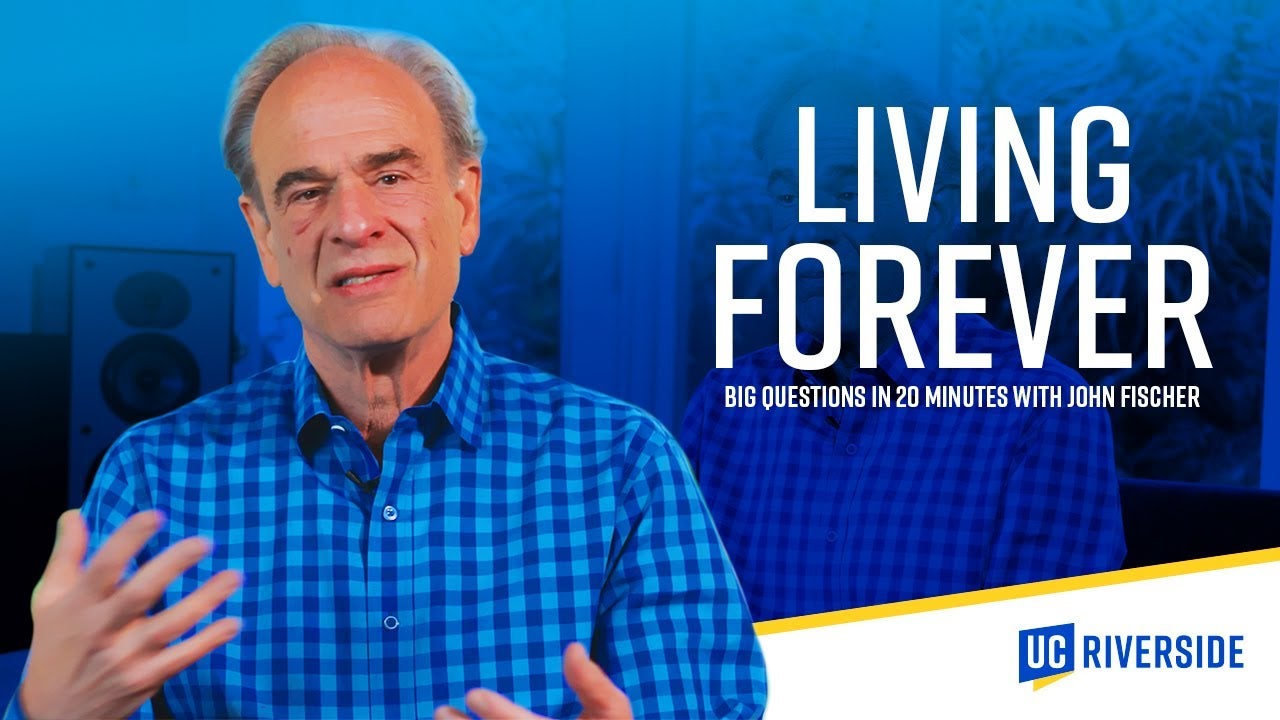
If you could, would you choose to live forever?
That’s the age-old question that University of California, Riverside distinguished professor of philosophy John Martin Fischer discusses in his new coauthored book, “Should You Choose to Live Forever?: A Debate,” published by Routledge and available now.
What are the pros and cons of living forever? If accepting death or living forever were incontestable options, what rationale, facts, or possibilities should people hinge their decision on?
In the book, Fischer and coauthor Stephen Cave, a philosopher at the University of Cambridge in the United Kingdom and director of a new institute to study technology of the future, pose readers with a question and then offer debate-format responses, giving each side equal space to present objections the other side must consider.
Opting to live forever is more than just a contemplated notion, said Fischer, whose research interests lie in free will, moral responsibility, and metaphysical and ethical issues pertaining to life and death. Historical discussions include Spanish explorer Juan Ponce de León’s quest for the desirable fountain of youth and teachings of ancient Greeks and Chinese, for example, spoke of immortality in their teachings.
What does “living forever” mean?
“Immortality is not a completely new notion. Christians, Jews, and Muslims, for example, believe their souls will live forever in an afterlife,” Fischer explained. “Fear of death is a basic human concern, and the desire for immortality is equally fundamental.”
Existing scientific research already explores various ways of increasing longevity. Scientists at Harvard, MIT, Stanford, and other top universities are studying factors that can influence aging, with the hope of slowing it down or even reversing it. These include medical and technological interventions. The science is proceeding rapidly, Fischer said.
In the book’s foreword, Lord Martin Rees, a British cosmologist and astrophysicist, he points to the questions that arise as humans attempt to alter human biology. What are the impacts of untested methods, biological and technological? What about human diseases? If such breakthrough would happen, it would be a costly process, available only to the wealthy. Would this become a new form of inequality for a privileged long-lived “caste?” And how would families be structured if many generations were alive at the same time?
These questions are being explored by scientists and philosophers in both the United States and the U.K.
In making his case for choosing not to live forever, Cave argues that if the possibility of living forever existed, a notion he dubs “radical life extension” factors other than diseases, would be major determinants. In countries such as the U.S., he argues, life expectancy would be lower due to fatal shootings and car accidents, compared to a safety-conscious country such as Japan.
Cave also raises questions such as, what happens when the person knows they’ll live forever and opts to live a despondent or reckless life?
Fischer prefers to evaluate all the greatness life has to offer.
It’s true that most human beings are afraid of death, Fischer writes. But it’s also true that human beings find consolation in cultural and religious beliefs, such as Latino communities celebrating Día de los Muertos (Day of the Dead). It’s a way to embrace death and know that their deceased loved one is in a better place.
Fischer said most people fear death because there is no roadmap, no precedent of what happens after death. It’s similar to our fear of the unknown.
“It’s fear of going out of existence,” said Fischer, who has authored three other books on these topics and is a frequent speaker on near-death experiences. Fischer also directed The Immortality Project, a collection of philosophical, scientific, and theological developments that advance the understanding of immortality and how this is relevant to the way people live in the present.
Taking the concept of life and death from a hypothetical state to an actionable concept means that while scientists figure out how to extend lives medically and technologically, people can focus on quality-of-life versus the quantity-of-life. Being mindful of diet, exercise, avoiding alcohol and drugs, are all reasonable actions people can take to prolong their life.
“We need to do the best that is within our constraints,” Fischer said. “If we are environmentalists, for example, look at ways to help within our ordinary lives: recycle, committing ourselves to working with political candidates who care about the environment. Let’s not fall into eco doom. Focus on achieving concrete things you can do.”
Allowing a person to focus on achievable actions allows for a greater psychological health, Fischer said. This creates space for people to consider what is good about their life: loved ones, family, friends, teammates.
“Those are some of the things that give us meaning. Also, a nice walk, solitude and reflection … watching your children grow up … eating delicious food, the pleasure of enjoying music. These are all pleasurable activities. Many activities give us enjoyment, and others are meaningful and rewarding, even if not pleasurable. More of what we value and care about is better.”
And while skeptics can cite external factors such as environmental degradation, pollution, and terminal diseases such as cancer, Fischer stands firm in wanting to choose life over death, given favorable circumstances, including continued health and good environmental quality.
When the end-of-life approaches, as it must prior to significant scientific advances, people should stay true to who they are in writing the last chapter of the narratives of their lives, he advises.
“As I’m living, I’m writing a narrative or a story of myself. I want to finish that story in a way that makes sense to me and others,” Fischer said. “One of the things that is important for most of us, is to reach out to people we love and cherish, and make sure we have a good ending to those relationships. It’s something positive to give them so they remember you for that. We also want to end the projects that have been giving meaning to our lives in a positive way. Human beings yearn for immortality, but that doesn’t imply that we cannot end our lives beautifully.”






